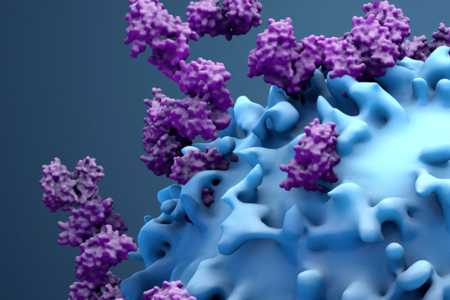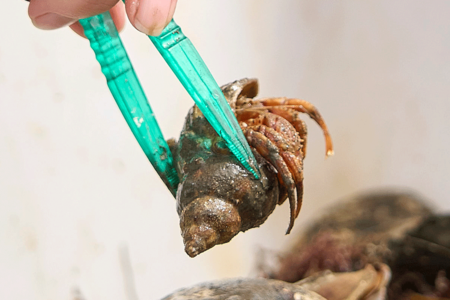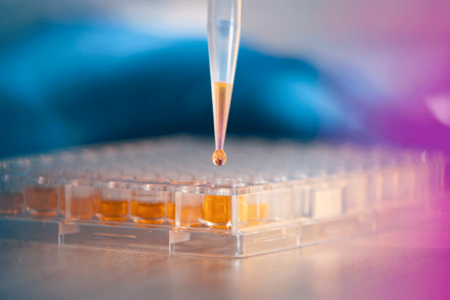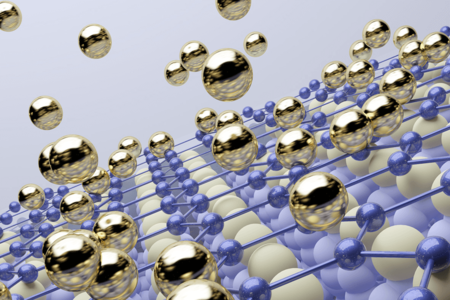About the programme
The MSc programme in Nanoscience and Technology takes place in China. It gives you a deep understanding of the concepts and methodologies of nanoscience and nanotechnology, as well as basic knowledge within business innovation and entrepreneurship. Please note that students at this programme must (as the general rule) be in China for the entire duration of their studies.
The programme is offered in English.
Considering studying at UCPH this September?
Application deadline: 1 MarchAdmission and application
To apply for admission to this master's degree programme, you must have completed a qualifying bachelor’s degree or a similar Danish or international degree programme which is assessed to be relevant. Apply for admission via the application portal.
Below, you can read more about admission requirements and which documents to upload in the application portal.
Academic Admission Requirements
To be admitted to the MSc programme, you must have proficiency in English at a high level and a Bachelor’s degree in a natural science field such as:
- Nano-Science
- Chemistry
- Physics
- Biochemistry
- Materials Science
Qualifying degree and other courses/projects
When we assess whether you meet the admission requirements for the Master's degree program, Danish legislation only allows us to assess your Bachelor's degree. Consequently, you cannot study supplementary courses between Bachelor's and Master's degree programs to meet the admission requirements.
If you have passed courses/projects before you complete the qualifying Bachelor's degree, these can be included in the assessment, even though they are not part of the Bachelor's degree program.
- It applies to courses/projects you have taken as single subjects and courses/projects you have taken as part of another study program.
- A maximum of 30 ECTS credits of these courses/projects may be included.
Application deadline
Study start in September
1 March at 23:59
Application deadline for all applicants.
Open for applications from 16 January. You will receive a reply by 10 June.
How to apply
Choose the category below that fits you and read more about how to apply for admission. You will also find information about application deadlines and documentation on the websites.
Please note: According to national legislation in China, Chinese citizens cannot apply for admission to Water and Environment through a Danish university. Instead, Chinese Citizens must apply for admission through University of Chinese Academy of Sciences.
Citizen in Denmark, EU EEA or Switzerland
Bachelor’s degree from Denmark
International bachelor’s degree
Citizen in a country outside EU, EEA or Switzerland
Bachelor’s degree from Denmark
International bachelor’s degree
| Admission statistics Nanoscience and Technology 2025 | |
|---|---|
| Admitted (of which have start in February) | 25 (0) |
| Admission distribution (legal right/other) | 0% / 100% |
| Applicants | 20 |
| Age average | Not disclosed |
| Nationality (dk/international) | 12% / 88% |
Programme structure
Nanoscience and Technology is a 2-year MSc programme where you will be taught in the many academic fields of nanoscience, including nanobiotechnology and nanoelectronics. You become an expert in applying scientific techniques in new ways, and in communicating technical and conceptual issues across disciplines such as biology and physics. Furthermore, the programme gives you a unique insight into the language, culture, and society of China.
Please note that as a student at this programme, you must (as the general rule) be in China for the entire duration of your studies.
During the programme your academic focus will be on the following areas:
- Unifying Concepts in Nanoscience
- Nanocharacterization
- Nanobiotechnology
- Synthesis and Fabrication
- Nanoelectronics
- Bio-nanomaterials
- Business Innovation and Entrepreneurship
- Nano Energy Materials
Academic staff and researchers at the Nano-Science Center at University of Copenhagen, iNano at University of Aarhus, and UCAS, are responsible for the majority of the teaching of the courses. This includes an overlap with researchers who are already involved in basic research centers such as Danish-Chinese Center for Molecular Nano-Electronics, University of Copenhagen, and the Danish-Chinese Centre for Self-Assembly and Function of Molecular Nanostructures on Surfaces, Aarhus University.
The nanoscience research performed by the involved institutions and centers ranges from condensed matter physics, nano physics, surface analysis, quantum mechanics, soft matter physics, materials chemistry, physical chemistry, nano chemistry, organic chemistry, synthesis, molecular self-organization, nanomaterials to nanoelectronics, photophysics and photochemistry.
Teaching and Language
The first year consists of class teaching and exercises in the laboratory at the National Center for Nanoscience and Technology, China in Beijing. The second year will focus on the thesis, which can be done in cooperation e.g., with a company in China.
All teaching is in English. You are not required to speak Chinese at the university. However, all international students studying in China must attend language and culture classes alongside their studies.
Programme Overview
Compulsory courses: 60 ECTS
Master's thesis: 60 ECTS
Year 1
| 1st semester | 2nd semester |
|---|---|
| Unifying Concepts in Nanoscience (15 ETCS) | Nanoelectronics (5 ETCS) |
| Synthesis and Fabrication (10 ETCS) | |
| Nanobiotechnology (5 ETCS) | Bio-nanomaterials (5 ETCS) |
| Business Innovation and Entrepreneurship (5 ETCS) | |
| Nanocharacterization (10 ETCS) | Nano Energy Materials (5 ETCS) |
Year 2
| 3rd semester | 4th semester |
|---|---|
| Thesis (60 ETCS) | |
Programme Curriculum
If you are more interested in the academic content, regulations, and examination requirements, you should consult the curriculum, which serves as the legal foundation for the programme.
There is both a curriculum specific to each degree programme and a general curriculum that applies across the faculty.
Please note that curricula are often revised annually. Any new versions will be published no later than during the spring semester.
Video: Study Nanoscience and Technology
Meet Jens Røberg Frandsen, who has taken the MSc in Nanoscience and Technology at SDC. Here he talks about his time in China and his job as a consultant at the Danish Technological Institute. Please note: The video is in Danish with English subtitles.
Video: Studying in China
Meet Cecilie, who has taken the MSc in Nanoscience and Technology at SDC. Here she talks about studying in China.
Video: Writing Your Thesis in China
Nanoscience and Technology MSc graduate Jens Røberg Frandsen talks about his thesis writing process. Please note: The video is in Danish with English subtitles.
Career opportunities
Upon completion of the master’s programme, you will obtain the title Master of Science in Nanoscience and Technology.
MSc in Nanoscience and Technology is an interdisciplinary and research-based programme with a focus on theoretical, experimental and practical subjects.
The programme provides students with skills and abilities to handle concepts and methods within the field of nanoscience and nanotechnology. Furthermore, it provides basic knowledge of business innovation and entrepreneurship.
The students in the Nanoscience and Technology programme comes from many different BSc fields such as physics, chemistry, biology and nanoscience. A Nanoscience and Technology student will, however, obtain an interdisciplinary and thorough knowledge of the research methodology. This allows the student to work in projects that often involve colleagues from other disciplines.
The student in Nanoscience and Technology could serve as a link between specialists e.g., in physics and biology, and communicate technical and conceptual issues across disciplines. A Nanoscience and Technology student in particular has an eye for new and unconventional applications of scientific techniques and methods.
This programme offers a unique opportunity to become a first-mover in China. In addition to the scientific education, the two years in China will also provide Chinese language skills, an in-depth understanding of Chinese culture and society plus a chance to develop a network in China.
All together a profile highly valued worldwide.
University of Copenhagen (UCPH) and University of Chinese Academy of Sciences (UCAS) offer the programme in close cooperation with Aarhus University (AU). The programme takes place in Beijing, China.
Employment
With an MSc degree in Nanoscience and Technology you will gain academic skills that allow you to work in various areas such as:
- High-tech companies
- Chemical plants
- Biotechnology
- Energy
- Medicine
- Materials Research
- Food industry
- Research Institutions
In addition to being able to work as a link between different professions, you will also have the advantage of knowing Chinese culture, traditions and language. This enables you to function as a bridging link between Danish and Chinese companies.
Student life
The teaching at Sino-Danish Center takes place in the House of the Danish Industry Foundation, which is located on UCAS’ Yanqihu campus 60 km north-east of Beijing.
The Great Wall of China is within walking distance from campus and so is the beautiful Yanqi Lake. On and around campus you can find dormitories for students, canteens, supermarkets, restaurants, and a lot of sports facilities. Local busses can take you from campus to the nearby town, Huairou where you can find more supermarkets, restaurants, shopping malls and a cinema. Moreover, you can transfer to the express bus to Beijing from Huairou.
Sino-Danish Center’s Danish and Chinese staff members also have an office in the House of the Danish Industry Foundation.
Sino-Danish Center for Education and Research (SDC)
Sino-Danish Center for Education and Research (SDC) is a partnership between eight Danish universities, the Ministry of Science, Innovation and Higher Education, the Chinese university University of Chinese Academy of Sciences (UCAS), and the Chinese research institute Chinese Academy of Sciences (CAS).
The aim of SDC is to promote and strengthen collaboration between Danish and Chinese research and education environments for the benefit of both countries.
Where is SDC?
The home of SDC is the House of the Danish Industry Foundation, which is located on UCAS’ Yanqihu campus north of Beijing. On sight you will find both Danish and Chinese staff, researchers and students. SDC also has a Danish office located in Aarhus.
Need more information?
Visit the SDC website or on Facebook or Instagram
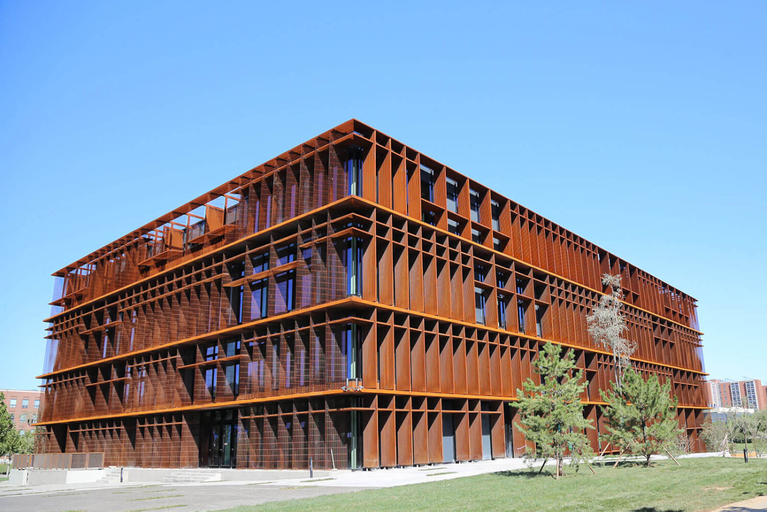
Programme contact
If you have any questions regarding Nanoscience and Technology please contact programme coordinator Amalie Maj Christensen: amc@chem.ku.dk.
You can also find more information on the website: www.sdc.university
Address in Denmark
Sino-Danish Center
Tåsingegade 1, building 1447, 2nd floor
DK-8000 Aarhus C
Email: contact@sdc.university
Contact student guidance
Questions about study choice and admission
Our student guidance are ready to assist you with answers to your questions about:
- application procedure and the digital application portal
- admission- and language requirements
- documentation
- study life
- career opportunities
- study choice or doubts
Did you not find what you were looking for?
You can find answers to questions most often asked by potential students in the FAQ. Read the FAQ
Questions about the digital application-portal?
Do you have questions about digital application? Check our user guide to the application portal.
In case of technical problems, please contact the IT-support by
- Mail: it-service@adm.ku.dk // Tel: +45 35 32 32 32

